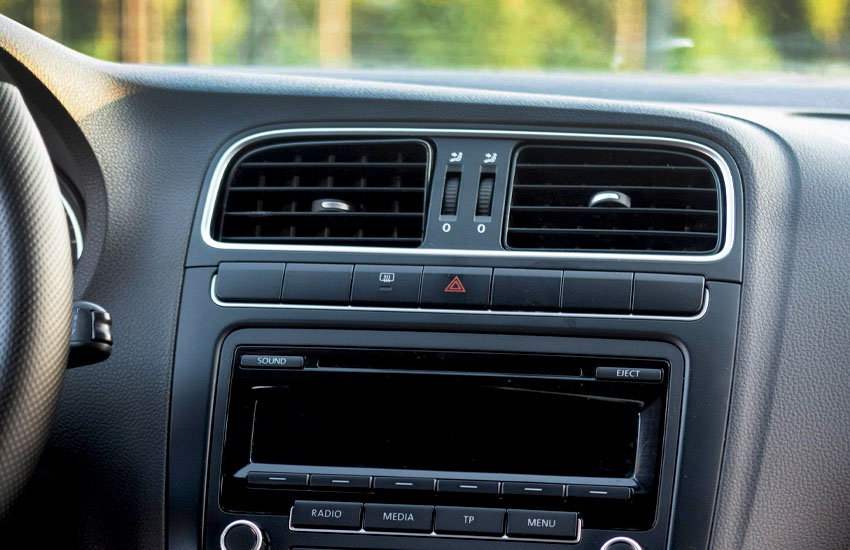As an Amazon Associate, I earn from qualifying purchases at no extra cost to you.
Why is There AC Compressor Noise at Idle? Expert Guide
Hey there! Ever noticed a strange noise coming from your car's AC compressor when the engine is idling? It's one of those sounds that can make you wonder if something's wrong. But don't worry, you're not alone. Many people hear the same thing, and while it's common, it might be a sign of something worth checking out. In this article, we'll take a closer look at why this happens, what causes it, and what you can do about it. Let's dive in!

Understanding Your AC Compressor and Its Role
Before we talk about why you might be hearing noise from your AC compressor, let's first understand what an AC compressor is and why it's so important. The AC compressor is a crucial part of your car's air conditioning system. It's responsible for pressurizing and circulating refrigerant through the system, which helps cool the air inside your car.
When you turn on your car's AC, the compressor works hard to maintain a consistent flow of refrigerant. As a result, it has to manage the changes in pressure and temperature. When everything is running smoothly, you won't even notice the compressor working. However, when it starts to make noise, it could be a sign that something is off.
What Happens When You Hear Noise from the AC Compressor?
When your AC compressor makes noise, especially when the engine is idling, it can be a little annoying. But what does it mean? In most cases, the noise is a sign that the compressor is under some kind of stress or that there's a problem with the system.
Sometimes, the sound is just a slight hum or buzz, which could mean the compressor is just doing its job. But if the noise is loud, squealing, grinding, or knocking, it's worth investigating further. These types of sounds often point to mechanical issues or system malfunctions that need attention.
Common Causes of AC Compressor Noise at Idle
Several things can cause your AC compressor to make noise at idle. It could be something simple or something that requires a bit more work. Let's take a closer look at the most common causes.
Low Refrigerant Levels
One of the most common reasons for AC compressor noise is low refrigerant levels. When the refrigerant is low, the compressor has to work harder to circulate the refrigerant through the system. This extra strain can cause the compressor to make more noise, especially when the engine is idling.
Low refrigerant levels can happen for several reasons, such as a leak in the system or the refrigerant just being used up over time. When you hear a grinding or rattling noise, it's a good idea to check the refrigerant levels. Low refrigerant can not only cause noise but also reduce the efficiency of your AC system, making it less effective at cooling your car.
Faulty or Worn-Out Compressor Clutch
The compressor clutch is the part that engages and disengages the compressor. When the clutch is faulty or worn out, it can cause the compressor to make noise. If the noise is a squealing or squeaking sound, the issue could be with the clutch, which may need to be replaced or repaired.
The compressor clutch is an important component, as it controls when the compressor is turning on and off. If it's not working correctly, the compressor may run continuously or fail to engage properly, which can lead to noise and even system failure.
Belt Issues
The serpentine belt or drive belt in your car is responsible for transferring power from the engine to various components, including the AC compressor. If the belt is loose, worn, or damaged, it can cause a squealing or chirping noise. This is especially noticeable when the car is idling because the belt doesn't have as much tension at lower engine speeds.
If you hear a high-pitched squealing noise from the AC compressor when idling, the belt may be the culprit. This problem is fairly easy to spot, as you'll often hear the noise immediately after starting the engine. You may need to tighten the belt, replace it, or check for any signs of wear or damage.
Dirty or Clogged AC Condenser
The AC condenser is responsible for releasing heat from the refrigerant once it has been compressed. Over time, dirt, debris, and other particles can clog the condenser, making it harder for the system to work efficiently. When the condenser is clogged, it can cause the compressor to work harder, which can lead to noise.
If you hear a humming or buzzing sound from the compressor, it could mean that the condenser is dirty or blocked. In some cases, cleaning the condenser can reduce the noise and restore the AC system to its normal operation.
Worn-Out Bearings
The bearings inside the compressor help it spin smoothly, allowing it to pressurize the refrigerant effectively. If the bearings become worn out or damaged, they can cause a grinding or rattling noise. This noise often happens when the engine is idling, as the compressor is under less load and can't mask the sound of the faulty bearings.
Worn-out bearings can lead to more serious damage to the compressor if not addressed quickly. Replacing the bearings or the entire compressor may be necessary to fix the problem and stop the noise.
How to Fix AC Compressor Noise at Idle
If you're hearing noise from your AC compressor at idle, don't panic. There are several ways to fix the issue, depending on what's causing the noise. Here's a step-by-step guide to help you troubleshoot and fix the problem.
Check Refrigerant Levels
The first thing you should do is check the refrigerant levels in your AC system. If the levels are low, you may need to top up the refrigerant or find and fix any leaks. If you're not sure how to check the refrigerant, a mechanic can help you with this. Keep in mind that if there's a leak in the system, simply adding more refrigerant won't fix the underlying problem.
Inspect the Compressor Clutch
If the refrigerant levels are fine, the next step is to check the compressor clutch. Look for any signs of wear or damage. If the clutch is faulty, it may need to be replaced. A mechanic can help you determine if the clutch is the cause of the noise and whether it needs repair or replacement.
Tighten or Replace the Belt
If the noise sounds like a squeal or chirp, the issue may be with the serpentine belt. Check the belt for any signs of wear, cracks, or damage. If the belt is loose, try tightening it. If the belt is worn out, you may need to replace it. Replacing a damaged belt is usually an affordable and easy fix that can help reduce noise.
Clean the Condenser
A clogged or dirty AC condenser can make your compressor work harder, leading to noise. To clean the condenser, start by turning off your car and letting it cool down. Then, use a soft brush or compressed air to remove any debris from the condenser. Be gentle when cleaning, as you don't want to damage the fins. After cleaning, check if the noise has improved.
Replace Worn-Out Bearings
If you suspect that the bearings in your compressor are worn out, it's best to take your car to a mechanic for further inspection. Replacing the bearings can be a delicate job, as it may require disassembling the compressor. In some cases, it may be more cost-effective to replace the entire compressor rather than just the bearings.
I hope this article helped you understand why your AC compressor is making noise at idle and how you can fix it. Remember, some noise is normal, but if it's loud or constant, it's worth checking the refrigerant levels, the compressor clutch, the belt, the condenser, and the bearings. Taking care of these issues early can help prevent bigger problems down the road and keep your car's AC system running smoothly.
Frequently Asked Questions
Is it normal for the AC compressor to make noise at idle?
It's normal for the AC compressor to make a slight noise while operating, but loud or unusual sounds could indicate a problem.
Can low refrigerant cause AC compressor noise?
Yes, low refrigerant can make the AC compressor work harder, causing it to make more noise.
Do I need to replace the AC compressor if it's making noise?
Not necessarily. Sometimes, the noise can be fixed by addressing issues like low refrigerant, a worn belt, or a faulty clutch.
Is it dangerous to drive with a noisy AC compressor?
If the noise is caused by a serious problem like a damaged clutch or worn-out bearings, it's best to get it checked by a mechanic to avoid further damage.
Can a loose belt cause AC compressor noise?
Yes, a loose or worn-out belt can cause a squealing or chirping noise, especially when the car is idling.
Do I need to clean the AC condenser to fix the noise?
Cleaning the AC condenser can help if it's clogged with dirt or debris. It might reduce the noise and improve the system's performance.
Is it expensive to replace an AC compressor?
Replacing an AC compressor can be costly, but the exact price depends on your car's make and model. It's best to get an estimate from a mechanic.
Can a faulty compressor clutch be repaired?
Yes, in many cases, a faulty compressor clutch can be repaired or replaced without needing to replace the entire compressor.





